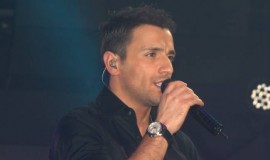Χωρίς κατηγορία
20 Ways to Master Сгенерированная статья
Before and After: What Changed with Dystopian Books
The Starting Point
In the early days of literature, the concept of dystopia was often intertwined with cautionary tales. Popular titles such as «The Hunger Games» by Suzanne Collins and «Divergent» by Veronica Roth captivated a new generation, expanding the audience and igniting discussions about societal structure and personal autonomy.
The Transition Period
As interest in dystopian narratives grew, the genre underwent a significant transformation. I was seeking a change, a narrative that could shake me out of my comfort zone and force me to confront the complexities of human nature and societal structures. popular dystopian novels
Why Dystopian Series Books Were Chosen
The choice to explore dystopian series books came as a natural evolution in my reading journey. However, the impact of these narratives extended beyond mere entertainment; they became crucial commentaries on the present, urging readers to examine their own realities.
Why Dystopian Literature Books Were Chosen
The choice to focus on dystopian literature was not arbitrary. Initially, these stories were often marginalized, viewed as mere speculation or fantasy.
Furthermore, the rise of dystopian society books marked a significant shift in the narrative landscape, reflecting the growing concerns about societal issues, governance, and the human condition. These stories provided a mirror to reality, allowing readers to confront the darker aspects of life. classic dystopian books
Why Dystopian Society Books Were Chosen
The choice to delve into dystopian society books stemmed from a collective need to understand and critique the world around us. This connection sparked conversations around topics such as governmental control, environmental sustainability, and individual rights.
Book clubs, online forums, and social media platforms became avenues for discussing the implications of these narratives. The post-9/11 world saw a growing sense of uncertainty and fear, which made dystopian scenarios more relatable. Readers were no longer confined to traditional publishing; they could discuss, critique, and share their thoughts on these novels with a global audience.
This period also saw the adaptation of dystopian novels into films and television shows, further amplifying their influence. The starting point for many of the most popular dystopian books can be traced back to early 20th-century literature, exemplified by classics such as George Orwell’s 1984 and Aldous Huxley’s Brave New World.
During this period, dystopian books served as a critique of contemporary societal norms, warning readers about the potential dangers of totalitarianism, loss of individuality, and the dehumanizing effects of technological progress.
Equally important, i sought stories that not only entertained but also offered a critical lens on reality.
Before and After: What Changed with Famous Dystopian Novels
The Starting Point
Before delving into the transformative impact of famous dystopian novels, it’s essential to understand the cultural and societal context in which these works emerged. Readers not only consume these narratives but also engage with them, reflecting on their implications and drawing parallels with real-world events.
The stories typically had clear distinctions between good and evil, and they offered readers a comforting escape from reality. Books such as «1984» by George Orwell and «The Handmaid’s Tale» by Margaret Atwood painted vivid pictures of societies where freedoms were stripped away, and humanity was often portrayed in a bleak light.
Why Books About Dystopian Society Was Chosen
The choice to focus on dystopian literature stems from its powerful ability to challenge perceptions and provoke thought. Books like «1984» by George Orwell and «The Handmaid’s Tale» by Margaret Atwood have become essential reading, not just for their storytelling, but for the critical conversations they inspire.
The Transition Period
As the popularity of dystopian literature surged, a transformation began to take shape. The genre has transcended its literary roots, influencing film, television, and even political discourse. As authors began to explore darker themes and complex societal structures, readers started to appreciate the depth and intricacy of these narratives.
Before and After: What Changed with Dystopian Series Books
The Starting Point
Before diving into the world of dystopian series books, I found myself engulfed in a routine that lacked excitement.

